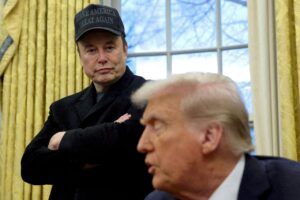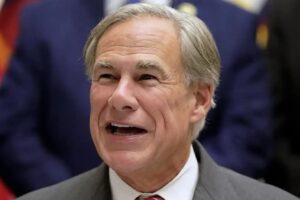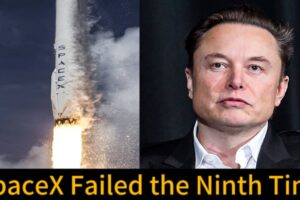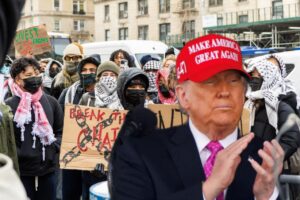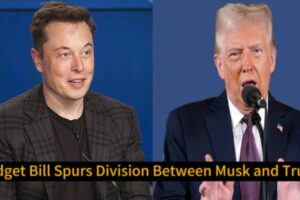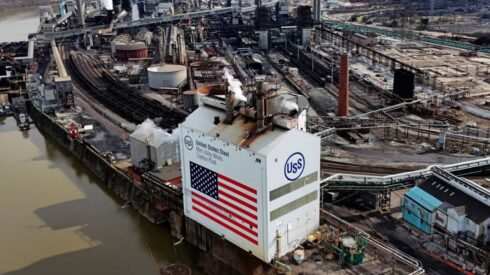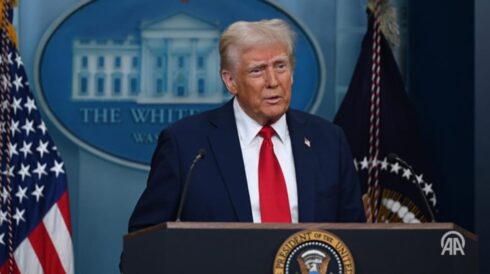US President Joe Biden has officially blocked the acquisition of US Steel by Japan’s Nippon Steel, citing national security concerns. The decision fulfills a political promise to protect the domestic steel industry but has drawn criticism for potentially straining US-Japan relations and discouraging foreign investment.
Biden’s statement highlighted the significance of maintaining domestic ownership of the steel industry, calling it critical to the nation’s infrastructure, defense capabilities, and economic security. “A strong domestically owned and operated steel industry represents an essential national security priority,” he said, underscoring the risks associated with foreign ownership.
The move came after the United Steelworkers union vehemently opposed the $14.9 billion deal, describing it as a threat to American jobs and industry stability. The union praised Biden’s intervention as “the right move for our members and our national security.”
Political Pressures Shape Decision Amid 2024 Campaign
Biden’s rejection of the Nippon Steel takeover has been widely interpreted as a politically motivated decision, particularly as the 2024 presidential campaign intensifies. Pennsylvania, home to US Steel and a critical swing state, played a central role in the calculus.
The transaction faced criticism from both Biden and his political opponents, including President-elect Donald Trump and Vice President-elect JD Vance, who argued that the deal would undermine American workers. With appeals to union workers dominating campaign rhetoric, Biden’s decision aligns with his administration’s broader “foreign policy for the middle class” agenda.
Despite concessions from Nippon Steel and US Steel—including pledges not to cut jobs and promises to fund workforce training—the deal could not overcome bipartisan political opposition. Analysts suggest that the rejection of the deal was a continuation of the “America First” policies seen during Trump’s presidency.
Fallout from Biden Decision and Reactions from Japan and the Companies
The Japanese government has expressed strong disapproval of Biden’s decision, calling it “incomprehensible.” Japanese industry and trade minister Yoji Muto emphasized concerns about the future of US-Japan investments, warning that the decision could harm bilateral economic ties.
Nippon Steel and US Steel issued a joint statement accusing Biden of prioritizing political gains over industry needs. “President Biden has sacrificed the future of American steelworkers for his own political agenda,” they said, adding that the decision sends a “chilling message” to allied companies considering significant investments in the United States.
The companies have vowed to pursue legal action to protect their interests, signaling a potential protracted battle over the blocked acquisition. Shares in US Steel fell by more than 5% following the announcement, reflecting market uncertainty over the company’s future.
Implications for US Steel and Bilateral Relations
The decision raises critical questions about the path forward for US Steel, a 124-year-old company that has struggled to remain competitive. The firm warned of potential factory closures without the capital infusion from Nippon Steel, a concern echoed by some local politicians and workers.
For Japan, the blocked deal represents a significant setback in its economic relationship with the US. Experts like Prof. Stephen Nagy of Tokyo’s International Christian University view the move as a political signal rather than a strategic economic decision. “This was a direct response and continuation of the Trump MAGA agenda,” Nagy remarked.
While Biden’s administration downplayed the impact on US-Japan relations, analysts suggest the issue may resurface under President-elect Trump, who could revisit the deal under revised terms. Political analyst Terry Haines noted, “The government faces a significant evidentiary burden to justify this decision, and it risks damaging a key bilateral relationship.”
The blocked transaction underscores the complex interplay between national security, political pressures, and international diplomacy, setting the stage for further developments in the US steel industry and its global partnerships.




